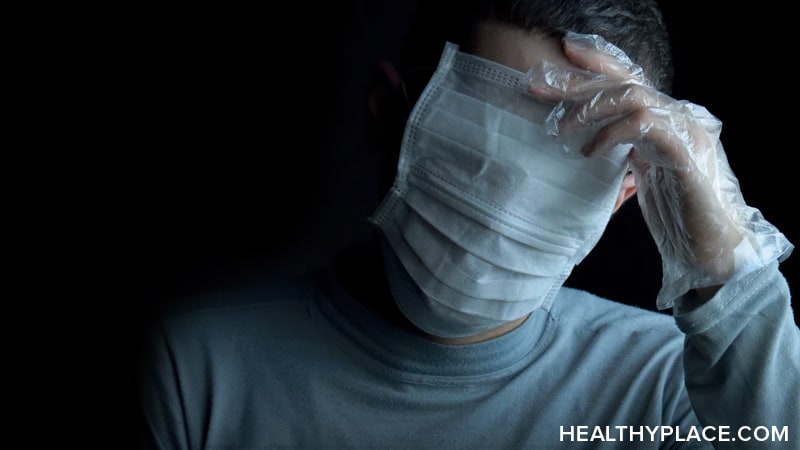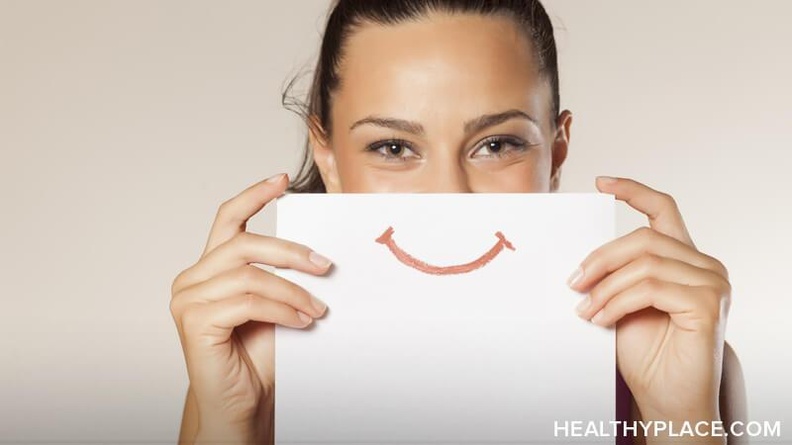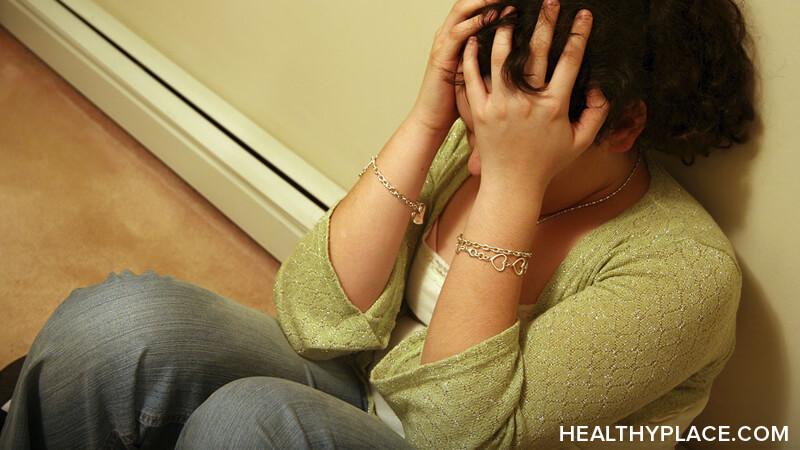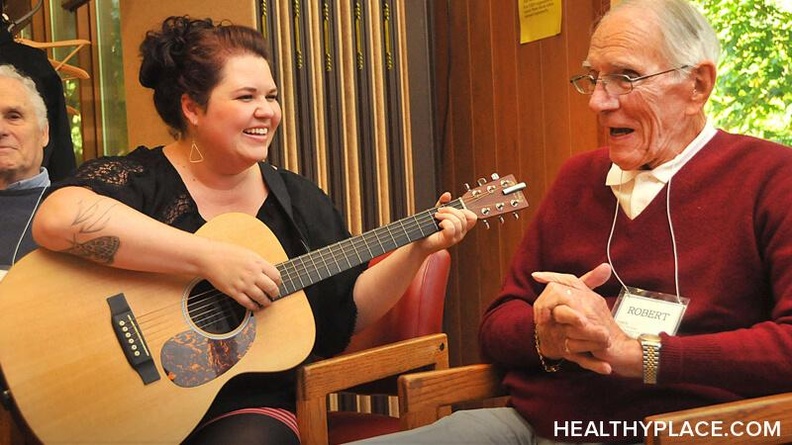HALT! Use This Tool to Check In, Boost Your Mental Health
What's happening at HealthyPlace this week?
- HALT! Use This Tool to Check In, Boost Your Mental Health
- From the HealthyPlace Mental Health Blogs
- Why I Choose Self Forgiveness in Eating Disorder Recovery
- Most Popular HealthyPlace Articles Shared by Facebook Fans
- Quote on PTSD

HALT is a tool often used in addictions recovery. It’s an acronym that stands for hungry, angry, lonely, and tired and serves as a handy reminder to all of us to stop and check-in with ourselves to make sure we’re powered up to run smoothly.
The first step in HALT is actually a silent “N.” Develop the habit of checking in with yourself so you can notice the signals your brain and body are sending you, and as soon as you notice that something isn’t right, pause and HALT.
- Hungry. We need nutritious energy for optimal functioning. A steady supply of healthy foods keep us mentally and emotionally strong.
- Angry. Anger and other negative emotions are both causes and effects of anxiety and stress. Use mindfulness tools like deep breathing and using your senses to pull yourself out of your thoughts and emotions and into your present moment so you can feel centered and decide what to do.
- Lonely. Connecting with others is vital to our wellbeing. Have you had positive interactions with someone lately? If not, make it a point to do so, even briefly.
- Tired. We don’t function well physically or mentally when we’re exhausted. If you’re tired, can you work in a quick power nap or even a short break to recharge?
To improve your mental health and keep yourself running smoothly, remember to HALT.
Recommended Video
Feeling lonely and isolated is a problem for many. You can feel less lonely and isolated if you follow these tips. Watch.
Related Articles Dealing with HALT
- Using H.A.L.T. to Avoid Triggers in Addiction Recovery
- Food and Your Moods
- PTSD and Nutrition: Are You Eating Properly?
- Nutrition for Kids with ADD - ADHD
- Diet and Depression: Is Your Diet Causing Depression?
- Is Your Comfort Food Making You Anxious?
- Constructive Tips to Resolve Anger and Conflict
- How to Handle ADHD and Anger in Adults
- Anxiety and Exhaustion: Wired and Tired
- Fatigue and PTSD—Why Am I So Tired?
- I’m So Tired—Bipolar Disorder and Fatigue
Today's Question: Do you have a special check-in you do to care for yourself and your mental health? We invite you to participate by sharing your thoughts, experiences, and knowledge on the HealthyPlace Facebook page.
------------------------------------------------------------------
From the HealthyPlace Mental Health Blogs
On all our blogs, your comments and observations are welcomed.
- The Relationship Between Self-Esteem and Anxiety
- Why Analysis Paralysis Is Common for People with ADHD
- What I Wish I Knew About Eating Disorder Recovery
- Self-Forgiveness Is a Powerful Tool in ED Recovery
- How to Build Self-Esteem Through Self-Identity
- How Decorations Help with Anxiety
- Introduction to Robert Vickens, Author of 'Creative Schizophrenia'
- Recovering from Self-Harm: When to Get Self-Help
- Driving to Physical Therapy Helps My Schizoaffective Anxiety
- Will I Always Be a Victim?
- How Mindful Meditation Helped Me Through Sobriety
- Toxic Positivity Hurts More than It Heals Your Mental Health
- We Need More Mental Health Shows Like 'After Life'
- How to Improve Your Self-Esteem During Hard Times
- Talking Openly About Anxiety
- Build Better Habits to Recover from Binge Eating Disorder
- Depression Helps Me Make Better Career Choices Sometimes
- Is Self-Harm Scar Removal Surgery Necessary?
- 'Maid' Shows the Hidden Abuse We Usually Don't Recognize
- Receive Painful News Without Taking It Out on the Body
- Do People with Bipolar Disorder Have Good Sex Lives?
- The Cycle of Fatigue and Anxiety
- My Undiagnosed ADHD Made Relationships Extremely Difficult
Feel free to share your thoughts and comments at the bottom of any blog post. And visit the mental health blogs homepage for the latest posts.
------------------------------------------------------------------
From the HealthyPlace YouTube Channel
It can be hard to extend yourself grace and compassion for your actions in the throes of an eating disorder. But Mary-Elizabeth knows why choosing self-forgiveness is a powerful tool in eating disorder recovery. Take a look.
Subscribe to the HealthyPlace YouTube channel
------------------------------------------------------------------
Most Popular HealthyPlace Articles Shared by Facebook Fans
Here are the top 3 mental health articles HealthyPlace Facebook fans are recommending you read:
- Quotes About Feeling Isolated
- What Are the Symptoms of Mental Illness?
- What Is Art Therapy? Art Therapy Definition
If you haven't already, I hope you'll like us on Facebook too. There are a lot of wonderful, supportive people there.
------------------------------------------------------------------
Quote About PTSD
“There is no timestamp on trauma. There isn't a formula that you can insert yourself into to get from horror to healed. Be patient. Take up space. Let your journey be the balm.”
Read more quotes about posttraumatic stress disorder.
------------------------------------------------------------------
That's it for now. If you know of anyone who can benefit from this newsletter or the HealthyPlace.com site, I hope you'll pass this onto them. Please share the newsletter on any social network you belong to. For updates throughout the week, follow us on Twitter, like us on Facebook, subscribe to our YouTube channel, or follow us on Instagram.
Thank you,
Deborah
Community Partner Team
HealthyPlace.com - America's Mental Health Channel
"When you're at HealthyPlace.com, you're never alone."
http://www.healthyplace.com
APA Reference
Peterson, T.
(2022, February 1). HALT! Use This Tool to Check In, Boost Your Mental Health, HealthyPlace. Retrieved
on 2025, May 14 from https://www.healthyplace.com/other-info/mental-health-newsletter/halt-use-this-tool-to-check-in-boost-your-mental-health








